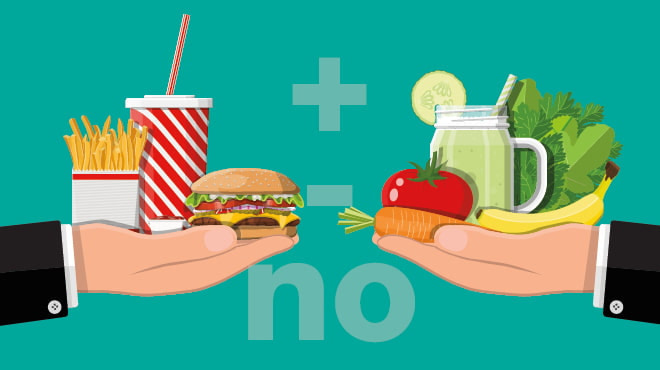
Recent Blogs
Bariatric Surgery (Weight-loss Surgery)
Is your weight controlling your life and affecting your health? Have you tried every diet under the sun? Having bariatric surgery may be your solution for long-term weight loss. Considering bariatric surgery is a huge commitment, and we promise to be here for every question you have.
We know that being overweight isn't about a lack of willpower, and we offer proven, medically based solutions. Most importantly, we genuinely care about your success. You'll find sensitive, supportive and respectful help from experts in multiple medical specialties. You'll also be given information on insurance, medical consultations, hospital and follow-up care, exercise and nutrition, counseling and support groups along the journey. Your weight and other health information will be held in strict confidence. We support your every step, focusing on your emotional, physical, nutritional and educational needs.
Our bariatric surgery program has received an advanced, high-acuity accreditation as a comprehensive center under the Metabolic and Bariatric Surgery Accreditation and Quality Improvement Program (MBSAQIP). MBSAQIP is a comprehensive, nationwide surgical quality program aimed at ensuring the safe and effective performance of metabolic and bariatric surgery. Surgical outcomes focus on weight loss and the treatment of obesity-related diseases, like diabetes, sleep apnea, and others. Research shows accredited centers experience lower complications, and better outcomes than that of non-accredited facilities.
This recognition illustrates the comprehensive care bariatric surgical patients receive here. It's a multidisciplinary program — not just a surgical procedure — which improves patient outcomes and ensures long-term success.
Find out more about our bariatric surgery services:
- Conditions and consultations
- Diagnosis and treatments
- Bariatric surgery specialists
- Referrals
- FAQ
- Bariatric surgery locations near you
- Bariatric surgery specialists near you
Conditions and consultations
Bariatric surgery may be an option for adults with a body mass index (BMI) of 30 or higher, depending on medical conditions. Insurance coverage for surgery varies, and some insurance programs require a higher BMI.
Conditions that can be improved with bariatric surgery include:
- Difficulty breathing
- Heartburn or gastroesophageal reflux disease (GERD)
- High blood pressure and cholesterol
- Low back pain and degenerative disk or joint disease
- Risk of cancer
- Risk of heart disease
- Sleep apnea
- Type 2 diabetes
Diagnosis and treatments
We specialize in two types of minimally invasive bariatric surgery and will help you select the one that is right for you.
The two types of surgery we provide are:
Roux-en-Y gastric bypass
The surgeon creates a small pouch at the top of the stomach and reroutes the small bowel into this pouch, restricting the amount of food you can eat. The body also experiences hormonal and chemical changes that help with losing weight and becoming more sensitive to insulin.
Watch a video on how a Roux-en-Y gastric bypass is done:
Sleeve gastrectomy
The surgeon removes about 75% of the stomach, resulting in a smaller, banana-shaped stomach, decreasing the amount of food you can eat. It also results in some metabolic changes, but they typically are less than with gastric bypass surgery.
Watch a video on how a sleeve gastrectomy is done:
Bariatric surgery specialists
Our team of experts is sensitive, supportive and respectful. We're with you every step of the way — before, during and after surgery — while focusing on your emotional, physical, nutritional and educational needs.
Our specialists include:
- Surgeon — Meets during surgery consideration and performs the surgery
- Medical bariatrician — Treats chronic and undiagnosed medical conditions, and follows up after surgery to monitor weight loss, vitamin levels and manage medication for long-term health maintenance
- Bariatric surgery coordinator — Facilitates pre- and postoperative care phases
- Psychologist or psychiatrist — Assesses emotional readiness for bariatric surgery in addition to lifestyle changes preparation necessary for long-term success
- Exercise counselor — Develops a personalized fitness plan
- Nutrition counselor — Coaches proper nutrition, portion size, lifestyle changes and dietary changes needed before and after surgery
- Polysomnography technologist or sleep physician — Assesses for and treats sleep apnea
Referrals
You can make an appointment without a referral from your provider — simply call the appointment number of your preferred Bariatric Surgery location.
If you're a non-Mayo Clinic Health System provider, you can refer patients to Bariatric Surgery online, by phone or by fax. We value the opportunity to collaborate with you on a treatment plan.
FAQ
What should I bring for my first appointment?
For your first appointment, bring your current prescription information or medical records from non-Mayo Clinic Health System facilities. Complete a medical records release form (PDF) to authorize the transfer of health records from another healthcare facility to us. Visit our Medical Record Forms page for this form and other forms in multiple languages.
How long will it take to complete the program?
It varies for each patient. Some complete it in three to six months, while others may take much longer. In some cases, the length of completion is determined by insurance.
What are my payment options, and do you offer financial assistance?
Visit the billing page of your preferred location for information on insurance, billing and payments.
We serve patients in difficult financial circumstances and offer financial assistance to those with an established need to receive medically necessary services. Learn more about financial assistance options.
Can you provide a second opinion?
Yes — call the appointment number at your preferred Bariatric Surgery location.
Do you have an after-hours number in case of emergency?
Always call 911 in case of an emergency. For after-hours help with other issues, get virtual care 24/7 through the Primary Care On Demand app or review our convenient care options.





